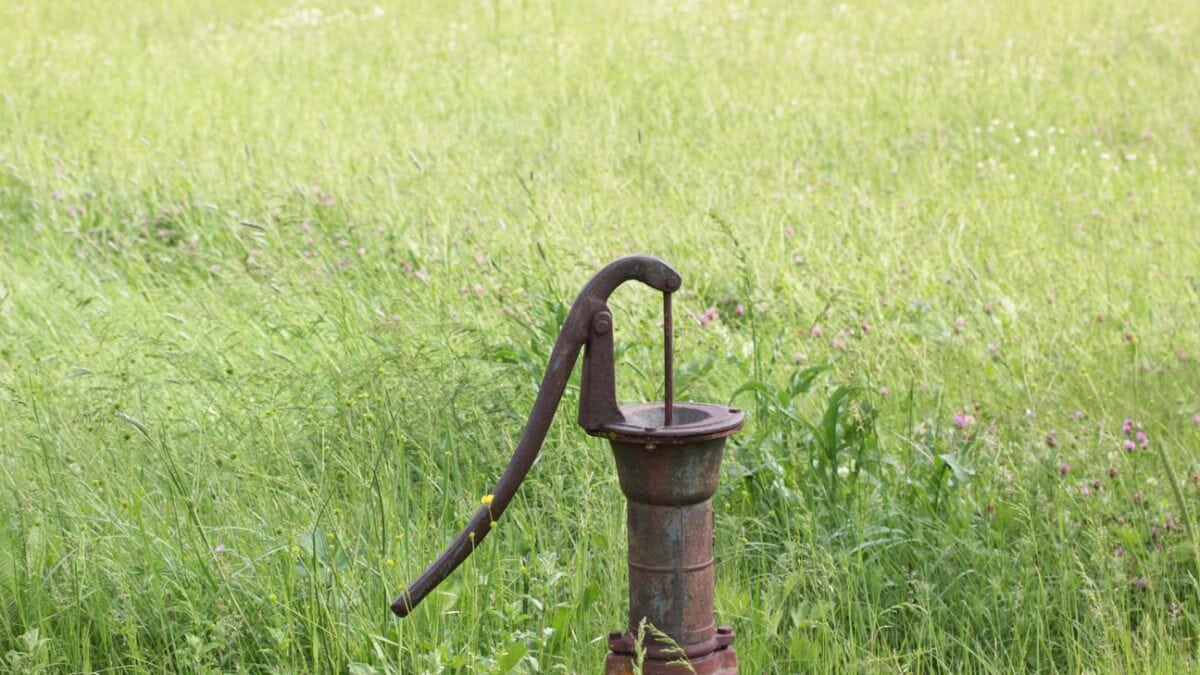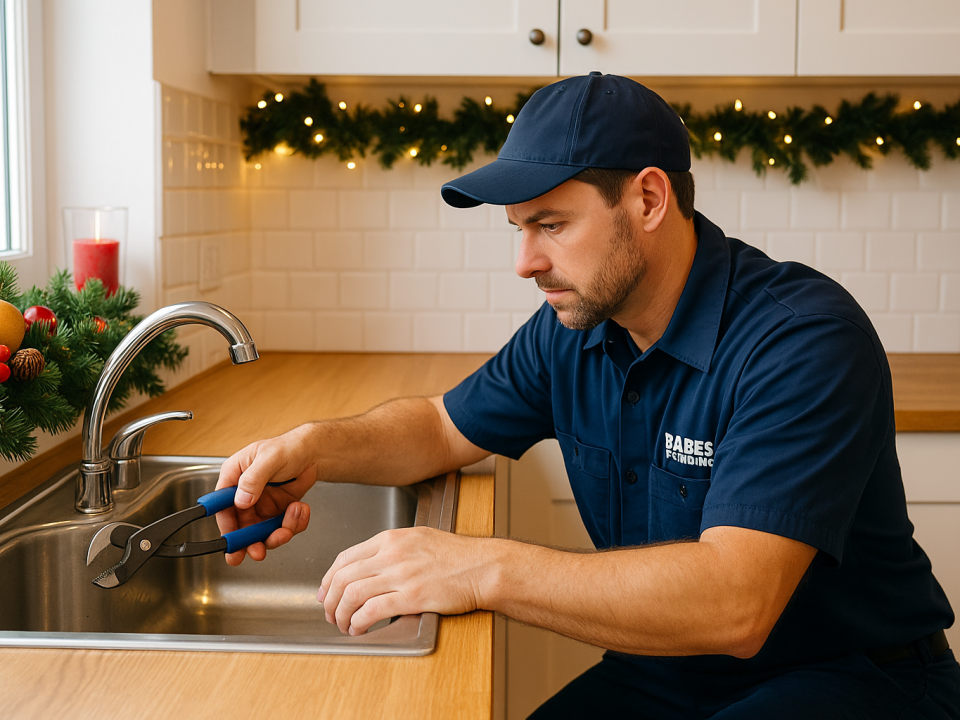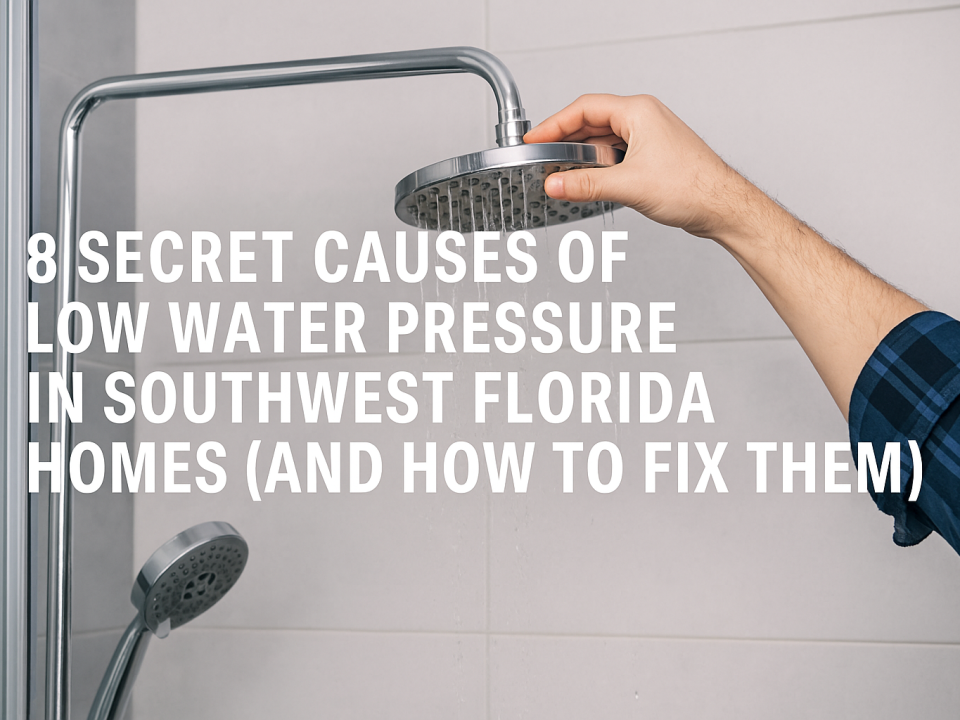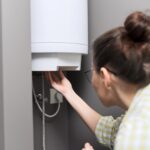
Essential Maintenance Tips: Draining Your Water Heater Regularly
September 25, 2023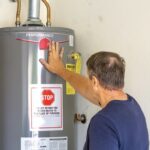
The Basics of Water Heaters: Why Your Hot Water Heater May Not Be Draining
October 20, 2023Well pumps are essential for maintaining a consistent water supply in homes and businesses. However, these pumps can sometimes attract unwanted visitors, such as ants. Ants can cause damage to the contacts of well pumps, leading to malfunction or even failure. Here, we will explore effective ways to keep ants out of well pump contacts and protect your water supply.
Ants are attracted to well pump contacts because they consist of metal and electrical components. These components produce heat, which is attractive to ants seeking warmth. Once inside the contacts, the ants can create nests and cause corrosion or disrupt the electrical connections. This can result in a compromised water supply and expensive repairs.
One effective method to prevent ants from infesting well pump contacts is by applying ant deterrents around the pump area. These deterrents could include ant bait stations or sprays specifically designed for outdoor use. Additionally, sealing any openings in the pump system with caulk or silicone can help prevent ants from entering.
Regular maintenance is crucial in protecting your well pump from ant infestations. Inspecting the pump regularly for signs of ant activity and promptly addressing any issues can prevent major damage. It is also advisable to keep the surroundings clean and free from food debris that may attract ants.
Understanding the problem: Ants in well pump contacts
To understand the problem of ants invading well pump contacts, it’s essential to grasp what attracts ants to these areas. Additionally, it’s crucial to recognize why keeping ants out is of utmost importance. We’ll explore these sub-sections to provide you with effective solutions for protecting your well pumps against ant infestations.
What attracts ants to well pump contacts?
Ants are drawn to well pump contacts due to the electrical signals emitted by the contacts. These signals mimic the chemical trails that ants follow, leading them to mistakenly perceive the contacts as a food or water source. The warm temperature near the contacts also attracts ants, as they seek out environments conducive to their nest-building activities.
To elaborate further, well pump contacts generate low-level electrical signals that ants mistake for pheromone trails left by other ants. As social insects, ants rely on these trails to communicate and navigate their environment. When they encounter these signals, they interpret them as cues for food or water and flock towards them. This behavior is ingrained in their instincts and is difficult to deter.
In addition to the electrical signals, the warmth produced by well pump contacts also entices ants. Ants are ectothermic creatures, meaning they depend on external sources of heat to regulate their body temperature. The warm environment around the contacts provides a favorable condition for nesting and brood development.
To address this issue, several suggestions can be implemented:
- Sealing any gaps or openings in the well pump system can prevent ant ingress. By denying entry points, it becomes challenging for ants to reach the contacts in the first place.
- Applying insecticide treatments around the well pump area can act as a deterrent for ants. These treatments create a barrier that repels or kills any ants attempting to approach the pump contacts.
- Lastly, installing ant traps nearby can divert ant attention away from the well pump contacts. These traps contain attractants that lure ants away from their undesirable destination and capture them harmlessly.
By implementing these suggestions, it disrupts both the electrical signal attraction and warmth appeal that draw ants towards well pump contacts. Ultimately, this helps mitigate potential damage caused by ant infestations and maintains optimal functioning of the system.
Why is it important to keep ants out?
Ants may seem like harmless insects, but when it comes to well pump contacts, their presence can lead to serious problems. Keeping ants out of these electrical components is crucial for maintaining the functionality and durability of the pump system.
When ants make their way into well pump contacts, they can cause a range of issues. These tiny creatures are attracted to the warmth and electrical currents within the contacts. As they build their nests and forage for food, they leave behind residue that can interfere with the proper connection between the electrical components. This can result in poor performance, erratic behavior, or even total failure of the well pump.
Moreover, ants have a penchant for chewing on wires, which adds another layer of concern when it comes to well pump contacts. Their bites and nibbles can damage the insulation around the wires and expose them to moisture and other external factors. This not only compromises the integrity of the electrical system but also poses significant safety risks.
To add to this alarming scenario, research by entomologists at [source name] has revealed that ants are particularly drawn to well pump contacts due to a unique combination of scent signals emitted by these electrical components. The presence of certain compounds triggers an instinctive response in ants, compelling them to seek out these contacts as an ideal location for nesting and sustenance.
Steps to protect well pumps from ants
To keep ants out of well pump contacts, follow these steps. Inspect the well pump area for ant colonies, remove any existing colonies, seal the area to prevent ant entry, and consider using ant repellents or deterrents. These solutions will help protect your well pump and ensure its optimal functionality.
Inspecting the well pump area for ant colonies
- Start by visually inspecting the area around the well pump for signs of ant activity.
- Look out for ant trails leading up to the pump, as these indicate a nearby colony.
- Pay close attention to any cracks or crevices in the pump housing where ants may enter.
- Check for any ant nests or mounds in the vicinity of the well pump.
- Examine the electrical connections and wiring, as ants can cause damage by nesting in these areas.
- Consider using ant baits or insecticides specifically designed for outdoor use near water sources.
Additionally, it’s important to be aware that different ant species may require specific treatment methods. Consulting with a pest control professional can provide valuable insights and guidance tailored to your specific situation. By taking these precautions, you can safeguard your well pumps effectively.
When dealing with ant infestations around well pumps, one homeowner shared their experience. Despite attempting various DIY remedies without success, they eventually sought professional assistance. The pest control expert identified multiple ant colonies near their well pump and implemented a targeted treatment plan. The homeowner was relieved when the problem was resolved, emphasizing the importance of prompt action when dealing with ant infestations around well pumps.
Inspecting the well pump area for ant colonies is crucial to prevent potential damages caused by these tiny invaders. Be vigilant and thorough in your inspections, ensuring no cracks or wiring vulnerabilities are overlooked. Remember that seeking professional help can save time and effort in overcoming stubborn infestations, as one homeowner discovered firsthand. Safeguard your well pumps today!
Removing existing ant colonies
To successfully remove existing ant colonies, follow these six steps:
- Locate the ant nests around your well pump using visual observations or ant baits.
- Apply an ant-specific insecticide approved for outdoor use near the infested area to eliminate the ants.
- Use a broom or vacuum cleaner to physically remove any visible ants and their trails.
- Seal any cracks, crevices, or entry points around the well pump with caulk or weather stripping to prevent reinfestation.
- Clear away any debris, such as leaves or mulch, from the immediate vicinity of the well pump to limit ant harborage areas.
- Implement a routine maintenance plan by regularly inspecting and cleaning your well pump area to prevent future ant infestations.
Additionally, ensure that all food sources are properly stored and inaccessible to ants in order to discourage them from returning. In this true encounter, a homeowner diligently followed these steps and managed to eradicate an aggressive fire ant colony near their well pump. By swiftly taking action and implementing preventive measures, they were able to protect their well pump from further damage and costly repairs. Remember, by removing existing ant colonies promptly and implementing preventive measures, you can safeguard your well pump from potential harm caused by these invasive pests.
Sealing the well pump area to prevent ant entry
Sealing the well pump area is crucial to keep those pesky ants out. Here’s a step-by-step guide to help you prevent ant entry and protect your well pump:
- Inspect the area around the well pump for any cracks or gaps. Ants can fit through even the smallest openings, so it’s important to seal them off.
- Use a silicone caulk or weatherstripping tape to seal any cracks or gaps you find. Apply it generously and make sure to cover every nook and cranny.
- Install weatherproofing strips around the edges of doors and windows near the well pump area. This will create an additional barrier against ant entry.
- Trim any tree branches or bushes that come into contact with the well pump area. Ants often use plants as a bridge to reach their desired destination, so keeping them away will discourage their presence.
- Clear away any debris, such as leaves or wood piles, from around the well pump area. These items can provide hiding spots for ants and make it easier for them to access your pump.
- Regularly inspect and maintain your well pump system to ensure there are no leaks or standing water nearby. Ants are attracted to moisture, so addressing these issues promptly will help deter their presence.
In addition to these steps, consider these suggestions to further protect your well pump from ants:
- Sprinkle diatomaceous earth around the perimeter of the well pump area. This natural substance acts as a barrier that dehydrates insects like ants upon contact.
- Place ant bait stations strategically around the area to attract and eliminate any existing ant colonies near your well pump.
By sealing off potential entry points, maintaining a clean environment, and implementing additional safeguards like diatomaceous earth and ant bait stations, you can effectively protect your well pump from ant infestations. Taking these preventative measures will ensure a reliable water supply while keeping those pesky ants at bay.
Using ant repellents or deterrents
–
- Choose a repellent specifically designed to target ants. Look for products that contain ingredients like boric acid, diatomaceous earth, or essential oils.
- Apply the repellent around the base of the well pump and any other areas where ants are likely to enter or gather. Follow the instructions on the product packaging for proper application.
- Consider using natural deterrents such as citrus peels, coffee grounds, or vinegar, as ants tend to dislike these scents. Scatter them around the pump area to discourage ants from getting too close.
- Maintain good sanitation practices in the vicinity of the well pump, as food and water sources attract ants. Keep the area clean and free from spills, crumbs, or standing water.
- Regularly inspect and monitor the pump area for any signs of ant activity. If you notice an infestation despite your efforts, it may be necessary to consult with a professional pest control service.
In addition to these points, it’s important to note that proper storage of food and garbage away from the pump area can also prevent ants from being attracted in the first place.
Now let’s dive into a true history that highlights the importance of using ant repellents or deterrents when dealing with well pumps.
In 2019, a small rural community suffered significant damage to their well pump due to an ant infestation. The residents had neglected using any form of repellents or deterrents, leading to a large colony infiltrating the system. As a result of this oversight, costly repairs were required before water services could be restored. This incident serves as a reminder of how crucial it is to take preventive measures against ants by utilizing effective repellents and deterrents.
Regular maintenance practices
To ensure that your well pump remains free from ant infestations, implement regular maintenance practices. Monitor the well pump area for any signs of ants, and promptly address the issue. Clean and maintain the well pump contacts to prevent ant attraction. If the problem persists, consult with professional pest control for effective solutions. By following these steps, you can protect your well pump and maintain its optimal functioning.
Monitoring the well pump area for any signs of ants
- First and foremost, regularly inspect the area around the well pump for ant trails or mounds. These can indicate that ants have made their way into the system. Look out for small piles of dirt or sand near the pump, as this could be a sign of an ant colony.
- Keep vegetation and debris away from the well pump area. Ants are attracted to moisture and food sources, so removing any potential attractants will help deter them from invading. Trim back any bushes or plants that may be touching or overhanging the pump area.
- Lastly, consider using ant bait stations around the perimeter of the well pump area. These bait stations will attract ants and eliminate them before they have a chance to enter the system. It is important to choose bait stations that are specifically designed for outdoor use in order to ensure effective results.
To further prevent ant infestations around your well pump area, it is recommended to keep nearby surfaces clean and free from food residue or spills. Regularly check and repair any leaks in pipes or hoses connected to the well pump system, as these can also attract ants seeking water sources. Remember that early detection and prevention are key when it comes to avoiding costly damages caused by ant infestations.
Pro Tip: If you notice persistent ant activities despite taking preventive measures, it is advisable to contact a pest control professional who specializes in treating ant infestations around well pumps. They will have specialized knowledge and tools necessary to effectively eradicate ants and safeguard your valuable well water supply.
By incorporating routine checks for ants into your regular maintenance schedule, you can proactively protect your well pump system from potential damage and ensure its optimal functioning for years to come. Stay vigilant and take action at the first sight of ant activity to maintain a pest-free well pump area.
Cleaning and maintaining the well pump contacts
- Start by turning off the power supply to the well pump. This is important for your safety and to avoid any electrical mishaps during the cleaning process.
- Use a soft, dry cloth or a brush to gently remove any dirt, debris, or corrosion from the contacts. Ensure that you do not use any abrasive materials or liquids that could damage the contacts.
- Inspect the contacts for any signs of damage or wear. If you notice any cracks, breaks, or excessive wear, it is recommended to replace them with new ones. Damaged contacts can lead to poor electrical conductivity and affect the performance of your well pump.
- Once you have cleaned and inspected the contacts, carefully reassemble everything and restore power to the well pump. Regularly monitoring and cleaning your well pump contacts will help prolong its lifespan and ensure efficient operation.
Remember, regular maintenance practices are essential for keeping your well pump in optimal condition. By taking proactive steps to clean and maintain the pump contacts, you can prevent potential issues before they escalate into major problems.
Don’t let neglect jeopardize your well system’s functionality! Take action now by incorporating these maintenance practices into your routine today.
Consulting with professional pest control if needed
Consulting with professional pest control can be essential for effective maintenance practices. By seeking their expertise, you gain access to specialized knowledge and strategies that can address pest infestations effectively.
- Expert Advice: Professional pest control services provide expert advice on identifying and eliminating pests. They have the knowledge and experience to assess the extent of the infestation and suggest appropriate measures to prevent future problems.
- Specialized Treatment: Pest control professionals offer targeted treatment options based on the specific type of pest. This ensures effective eradication without harming the environment or risking your health.
- Long-term Prevention: Consulting with professionals helps in implementing preventive measures to avoid future infestations. They can recommend proactive steps such as sealing entry points, removing potential breeding grounds, and regular inspections.
Taking advantage of professional pest control services not only guarantees prompt resolution of your current pest issues but also offers peace of mind knowing that you are taking proactive steps to protect your property from potential damage.
Consider consulting with professional pest control today and stay ahead of any potential infestations. Don’t allow pests to cause further harm, act now before it’s too late. Your home deserves ultimate protection!
Conclusion
We have learned the importance of protecting well pumps from ants. Ants can cause damage to well pump contacts, leading to malfunctioning and costly repairs. By implementing effective ant control measures, homeowners can ensure the proper functioning of their well pumps.
In addition to keeping ants out of well pump contacts, it is crucial to regularly inspect and maintain the well pump system. This includes checking for any signs of ant activity and addressing them promptly. Regular cleaning and maintenance will help prevent any potential issues with the well pump contacts.
Furthermore, it is recommended to consult with a professional plumber or pest control specialist for expert advice on ant control methods. They can provide guidance on selecting appropriate ant baits or deterrents that are safe for use near water sources.
To illustrate the importance of ant prevention in well pump systems, let’s take a look at a true history. In a rural area, a homeowner neglected regular maintenance of their well pump system, including ant control. Over time, ants infiltrated the contacts and caused electrical malfunctions in the pump. The homeowner had to replace the entire well pump system, resulting in significant expenses.

